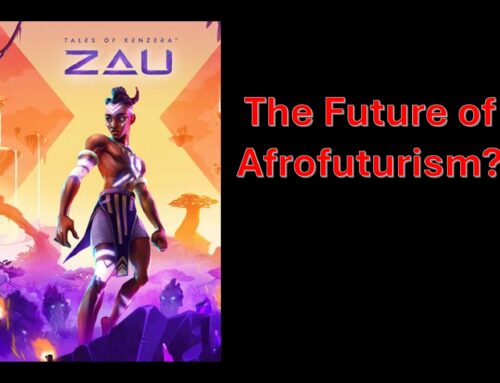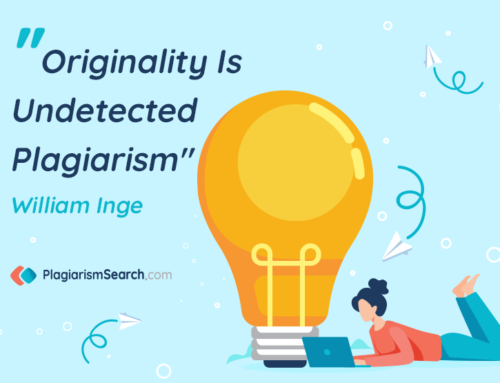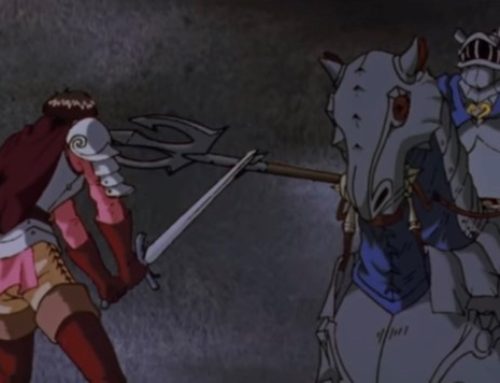I’ve heard it said that one goal of fiction is to experience results without consequences. We might enjoy watching a tragedy like Hamlet and take some strange satisfaction in watching the title character suffer, but we also get to see how a person’s character flaws, such indecisiveness and inaction, can hurt the people around us. We can watch a movie like Forrest Gump and follow the many terrible decisions Jenny makes and learn how drugs, alcohol, and unprotected sex can destroy and even end a person’s life.
And then, because we haven’t actually been stabbed with a poisoned sword, or contracted a deadly STD, we can get up, go back to our regular lives, and try not to make the same mistakes as the characters we watch and read about.
There are a lot of other reasons to explore fiction, such as wanting to explore other worlds, or see our world reimagined, possibly with superheroes or wizards running around in New York City, or maybe just seeing a group of adult friends dealing with sitcom hijinks. I can’t help but notice a pattern, though. In all of these different setups, whether it’s science fiction, urban fantasy, or even a slice-of-life sitcom, every fiction story seems to start with the same question: what if?
What if magic were real, and we had a way to study it? What if people in the end of the 23rd millennium are so technologically advanced that the excess of comfort and wealth turns us into better people who can set out to explore the final frontier? What if futuristic technology doesn’t make humans better, and giving us more material wealth and options only allows us to amplify our worst vices? What if a dad goes into way too much detail explaining to his children how he met their mother, and includes things like all of his other one-night-stands that his kids probably don’t want to know about?
If you have an idea for a story, chances are, you’ve already asked one or two of these questions already. The problems arise when the author doesn’t ask the what ifs that the audience thinks of after the book is published.
The biggest problem I see on a regular basis is when a writer tries to inject one major element into a story, and then doesn’t consider many of the ripple effects their element will create. Say that in a fantasy setting, similar to the Wheel of Time, you have a system of magic that only works for women (I understand that men in Wheel of Time can be wizards, but for a long period of time it was believed that male wizards were extinct). This would have a massive impact on gender politics, but it would also trickle down into basic interactions between men and women in general.
Would societies in this setting necessarily be matriarchal? Possibly, but it depends on the magic. In a roundabout way, women already have the magical ability to create new life, which is something science has never really been able to do. This has not, however, reorganized all human societies to place women in positions of power. If you’d like to do a matriarchy built around female mages, consider researching matriarchal or pseudo-matriarchal societies from history. Are they battlemages? Are the female wizards drafted by the military to use their powers in battle? Are societies that don’t draft female wizards able to protect themselves from militaries that do? Consider researching the Scythians. Do the wizards use their powers for clairvoyance and fortune telling, like in Dune? If they aren’t equipped for combat, expect the wizards to be overpowered by physically capable soldiers and rulers who will want to exploit them for their prophetic powers.
Compare the scenarios I just suggested to the Rick and Morty episode “Raising Gazorpazorp”, where the female Gazorpians are shown to have telekinetic powers that enable them to rule the technologically advanced planet, with males excluded to stone age villages. We never really see how the female Gazorpians handle warfare, but unless their planet is somehow isolated from all of the other dangerous aliens in the show (Rick and Morty is not really a safe multiverse for anyone, so I have my doubts), the females must be involved in defending their civilization somehow. And yes, I am putting more thought into a culture that only appeared in one episode than the show writers probably did, but if you’re thinking of writing a book with a similar premise, you should too.
Sadly, many aspiring authors I’ve met in writers’ groups do not do this. Obviously, you cannot cover every detail, or go through every possible result, but if you don’t explore your what if question beyond the surface level, you will leave your readers wondering why the effects of your premise aren’t showing up, and will likely feel confused and angry if you don’t scratch that itch.
And in the end, failing to explore the far-reaching consequences will always disappoint your readers, because in not showing the audience the results of your premise, you rob yourself and your audience of one of the goals of fiction.





